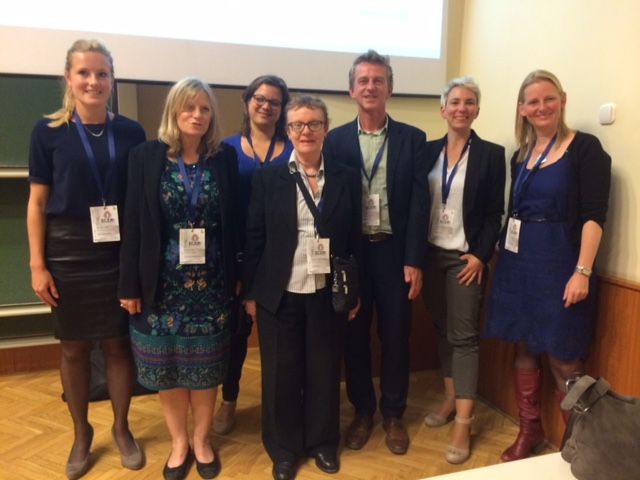What is it that determines how effectively students work on a task in the open phases of a school lesson? At the European Conference for Educational Research (ECER) in Budapest we presented our latest research results on this. Of course, a student’s own motivation can explain his or her effectiveness to a large extent. But what is surprising is the strong influence the learning partner has on the learning results. Also similarities between the learning partners have an impact on their effectiveness: The more similar the learning partners’ motivations are, the better they learn together.
Tag: collaborative learning
Interested in collaborative learning, games based learning, motivation of learners or video analysis? You won’t want to miss this talk by the University of Hamburg’s Professor Jens Siemon on 7 October.
Professor Siemon will speak about his developments in collaborative learning research using video analysis.
Register: matt.bower@mq.edu.au
Professor Jens Siemon, in conjunction with the Wilf Malcolm Institute of Educational Research, will visit the University of Waikato on 01 October 2015 to speak on learners’ motivations and the challenges of doing video observations in collaborative, game-based learning.
Professor Siemon’s will speak about a current study he is undertaking with Antonia Scholkmann and Kay-Dennis Boom entitled ‘Time on Task’ in Collaborative Learning – Influence of Learning Goal Motivation and Group Composition. This research focuses on the connection between (a) a student’s individual learning goal motivation and (b) the learning partner’s learning goal motivation and the effective learning time spent on a specific task in a collaborative learning arrangement.
Data video observations of 56 students was used from three classes in the field of business education. All students worked on an assigned computer assisted game-based learning task in dyads for approximately eight hours. Subjects were videotaped for the whole time with three different cameras; additionally, each student wore a personalized audiotape recorder (Knigge, Duarte, Nordstrand, Siemon, & Stolp, 2013). All video material was analyzed in a time-sampling procedure using ten second intervals by trained raters using a coding scheme of learning time being on topic’ vs. ‚off topic’.
Learning goal motivation was surveyed with the SELLMO-scales (Spinath, Stiensmeier-Pelster, Schöne, & Dickhäuser, 2002). Data analysis is currently done using hierarchical regression analyses. First results confirm the hypothesis that both learning partners’ goal motivations add to the explained variance when it comes to time spent on the learning task, which is considered the dependent variable in the model.
For more information see Seminar (PDF)
and Wilf Malcolm Institute of Educational Research
